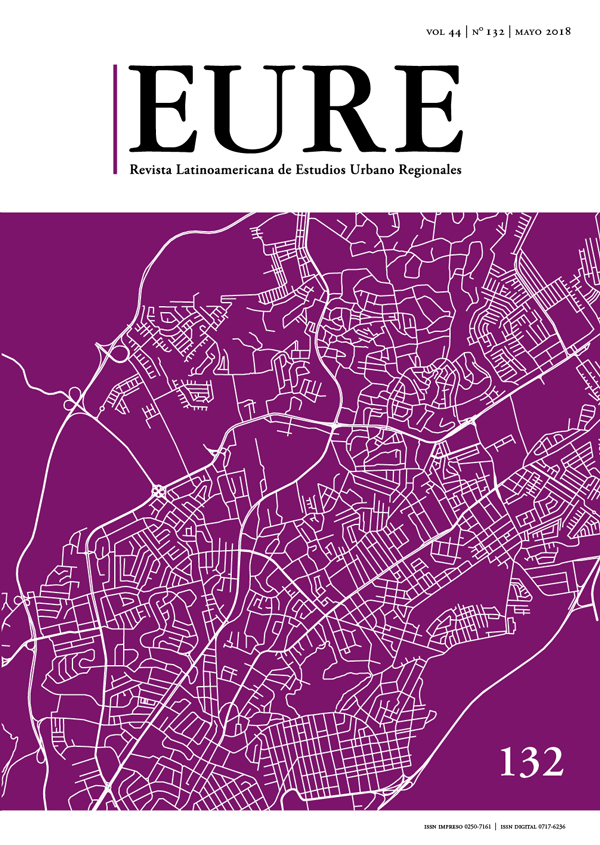Accumulation of Housing by Banks Through Evictions: Geography of Home Dispossession in Catalonia
DOI:
https://doi.org/10.4067/s0250-71612018000200005Keywords:
regional inequalities, real estate market, housingAbstract
The extension of evictions since 2008 is a manifestation of the consequences of the Spanish real estate and financial model, as well as a needed mechanism to maintain the logic of the model of accumulation by dispossession. The evictions due to foreclosures are fuelling a process of accumulation of housing in hands of bank entities. This paper studies the process of ownership concentration and the emergence of new grand landlords and, secondly, develops an analysis of the territorial logics of this process in Catalonia. We conclude by arguing that the so-called solutions to the crisis have led to the intensification of uneven geographical development through the appropriation of urban incomes through dispossession housing. In this sense, while bbva and Bankia are the entities that have concentrated most public funds, they are also the ones that have accumulated most empty housing units acquired by foreclosures. These housing units are concentrated in the most precarious neighborhoods.Metrics
Downloads
Published
How to Cite
Issue
Section
License
Copyright (c) 2018 Revista EURE - Revista de Estudios Urbano Regionales

This work is licensed under a Creative Commons Attribution 4.0 International License.
Al momento de aceptar la publicación de sus artículos, los autores deberán formalizar la cesión de derechos de autor a EURE, según las condiciones establecidas por la Revista.
Ésta establece que el autor autoriza a EURE de manera gratuita, exclusiva e ilimitada a reproducir, editar, publicar, distribuir, publicitar, comercializar y traducir el artículo, a cualquier soporte conocido o por conocer y desarrollar.
Del mismo modo, los autores aseguran que el artículo propuesto es original, no publicado y no propuesto para tal fin a otro medio de difusión.


